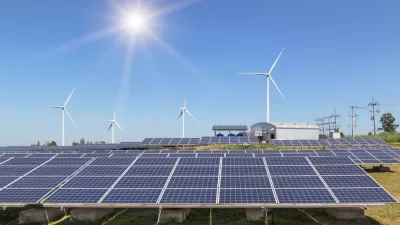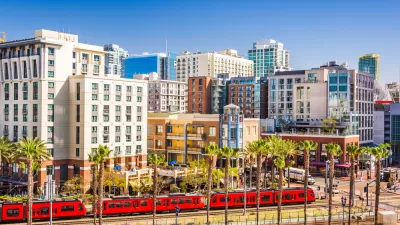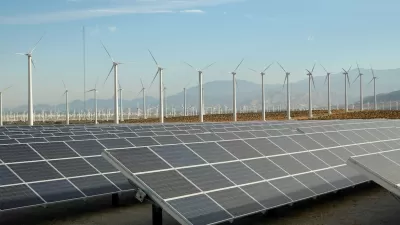Renewable energy is cheap as ever, but zoning isn’t keeping up with the market.

An article by Thor Benson for Popular Science reports on a key obstacle standing in the way of the kind of renewable energy development now possible at scale: zoning codes.
According to Benson, the amount of renewable energy projects is nowhere near commensurate to the economics of renewable energy.
The cost of renewable energy has plummeted over the past decade. The price of solar panels has decreased by roughly 90 percent over the past decade or so and the cost of wind power decreased by over half over that same period. With prices so low, it would be affordable to implement more solar and wind power in the United States than what we currently see.
While some states have fared better than others in rolling out renewable energy (California briefly achieved 100 percent renewable energy production earlier this month, for example), solar and wind power accounts for only 13 percent of the nation’s total energy production capacity, according to a recent report by the Americas for Bloomberg New Energy Finance. According to experts cited by Benson, the “soft costs” of permitting, zoning approvals, and construction are preventing higher levels of renewable energy production.
One 2020 study found getting a permit to install solar panels takes about 50 days on average, which is weeks longer than many other kinds of construction permits take. Wait times have slowly decreased over the past decade, but they remain a barrier.
Moreover:
Then there’s zoning laws…an area might not be zoned for installing renewable energy, which means you can’t install it unless your local government decides to allow it. A zoning ordinance might allow it to be installed but have requirements for where it’s allowed to be installed due to concerns about things like community aesthetics. It could even be entirely unclear if installing a renewable energy system is permissible at all.
Zoning codes in many U.S. cities were written long before climate change would make apparent the need to reduce greenhouse gas emissions from the power grid, or solar and wind energy became a possibility to located in local communities.
The source article, linked below, includes more details about how zoning laws prevent the development of renewable energy resources, and how some states and cities are revisiting zoning to respond to the need for more renewable energy capacity.
FULL STORY: Outdated zoning laws are holding renewable energy back

Trump Administration Could Effectively End Housing Voucher Program
Federal officials are eyeing major cuts to the Section 8 program that helps millions of low-income households pay rent.

Planetizen Federal Action Tracker
A weekly monitor of how Trump’s orders and actions are impacting planners and planning in America.

The 120 Year Old Tiny Home Villages That Sheltered San Francisco’s Earthquake Refugees
More than a century ago, San Francisco mobilized to house thousands of residents displaced by the 1906 earthquake. Could their strategy offer a model for the present?

HSR Reaches Key Settlement in Northern California City
The state’s high-speed rail authority reached an agreement with Millbrae, a key city on the train’s proposed route to San Francisco.

Washington State Legislature Passes Parking Reform Bill
A bill that would limit parking requirements for new developments is headed to the governor’s desk.

Missouri Law Would Ban Protections for Housing Voucher Users
A state law seeks to overturn source-of-income discrimination bans passed by several Missouri cities.
Urban Design for Planners 1: Software Tools
This six-course series explores essential urban design concepts using open source software and equips planners with the tools they need to participate fully in the urban design process.
Planning for Universal Design
Learn the tools for implementing Universal Design in planning regulations.
Ada County Highway District
Clanton & Associates, Inc.
Jessamine County Fiscal Court
Institute for Housing and Urban Development Studies (IHS)
City of Grandview
Harvard GSD Executive Education
Toledo-Lucas County Plan Commissions
Salt Lake City
NYU Wagner Graduate School of Public Service





























